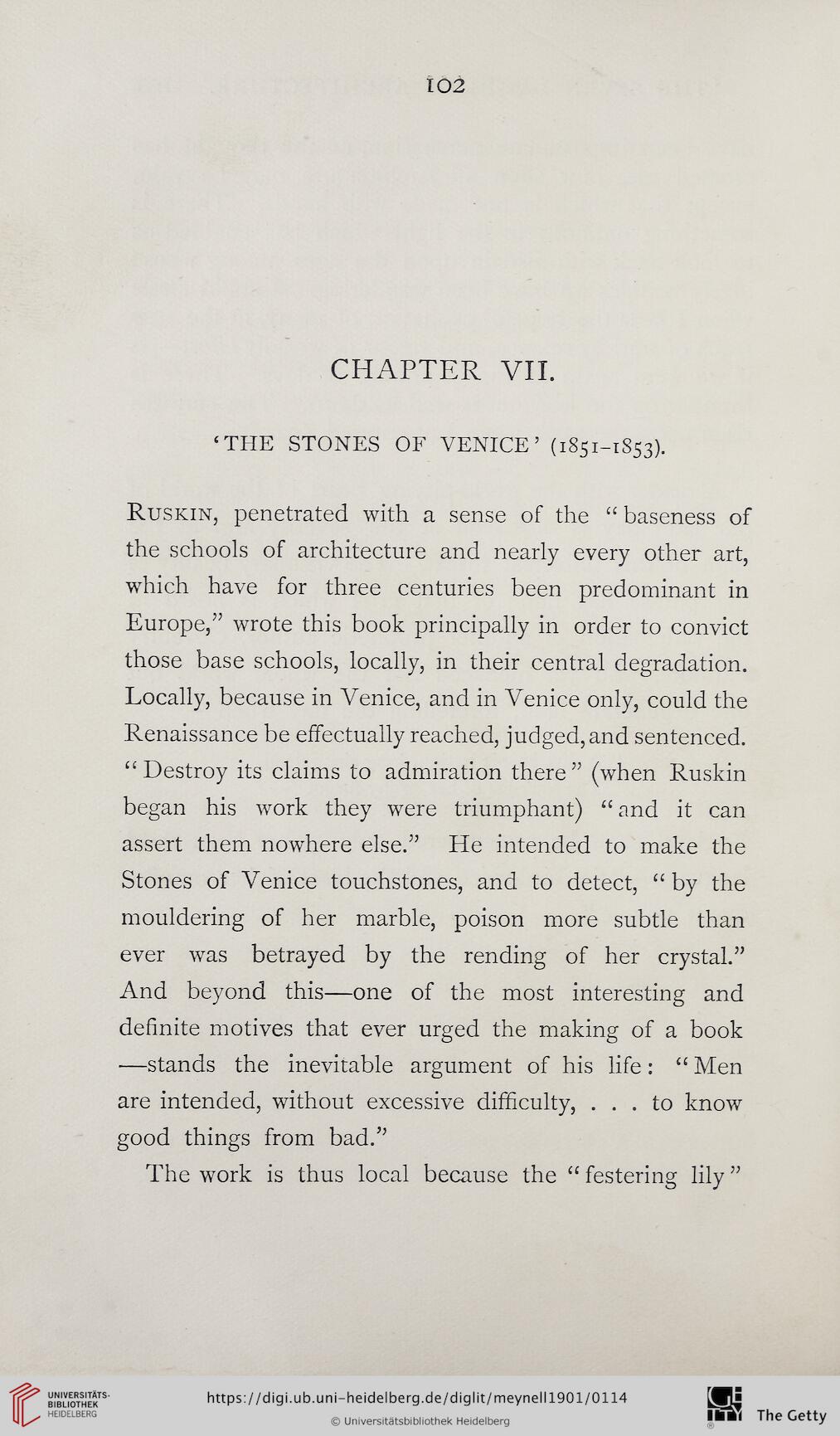102
CHAPTER VII.
‘THE STONES OF VENICE’ (1851-1853).
Ruskin, penetrated with a sense of the “ baseness of
the schools of architecture and nearly every other art,
which have for three centuries been predominant in
Europe,” wrote this book principally in order to convict
those base schools, locally, in their central degradation.
Locally, because in Venice, and in Venice only, could the
Renaissance be effectually reached, judged, and sentenced.
“Destroy its claims to admiration there” (when Ruskin
began his work they were triumphant) “ and it can
assert them nowhere else.” He intended to make the
Stones of Venice touchstones, and to detect, “ by the
mouldering of her marble, poison more subtle than
ever was betrayed by the rending of her crystal.”
And beyond this—one of the most interesting and
definite motives that ever urged the making of a book
—stands the inevitable argument of his life: “ Men
are intended, without excessive difficulty, ... to know
good things from bad.”
The work is thus local because the “ festering lily ”
CHAPTER VII.
‘THE STONES OF VENICE’ (1851-1853).
Ruskin, penetrated with a sense of the “ baseness of
the schools of architecture and nearly every other art,
which have for three centuries been predominant in
Europe,” wrote this book principally in order to convict
those base schools, locally, in their central degradation.
Locally, because in Venice, and in Venice only, could the
Renaissance be effectually reached, judged, and sentenced.
“Destroy its claims to admiration there” (when Ruskin
began his work they were triumphant) “ and it can
assert them nowhere else.” He intended to make the
Stones of Venice touchstones, and to detect, “ by the
mouldering of her marble, poison more subtle than
ever was betrayed by the rending of her crystal.”
And beyond this—one of the most interesting and
definite motives that ever urged the making of a book
—stands the inevitable argument of his life: “ Men
are intended, without excessive difficulty, ... to know
good things from bad.”
The work is thus local because the “ festering lily ”





